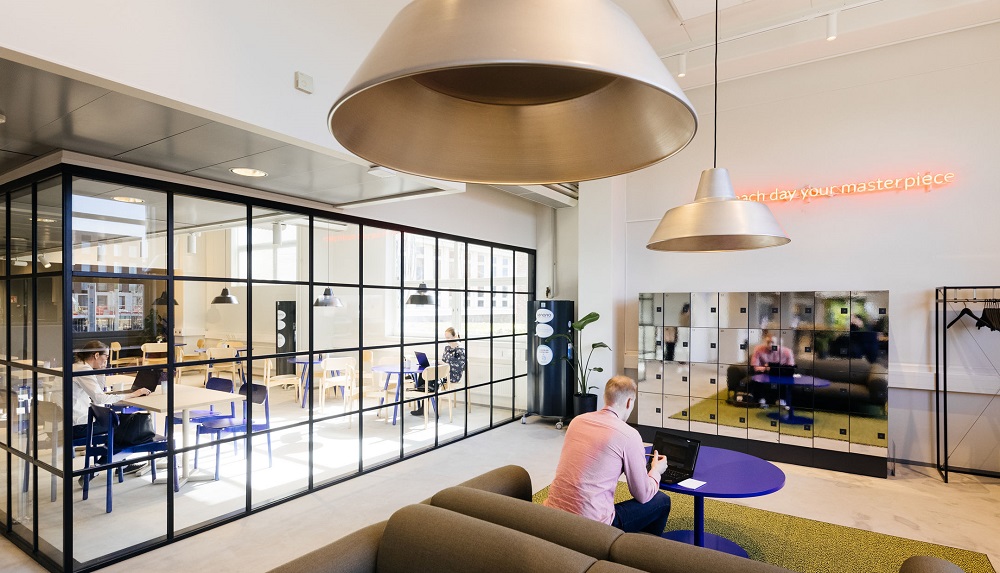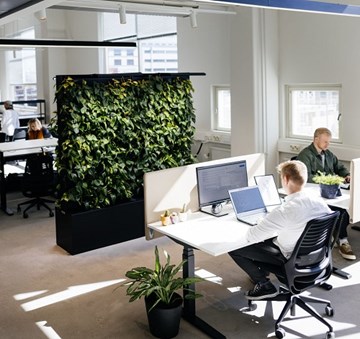The smart real estate concept emerged from an ecosystem project
YIT’s smart, technology-based business premises concept Workery+ was developed as part of the KEKO ecosystem project funded by Business Finland. The project brought together leading technology and building technology companies to create smart and attractive working environments.
The Workery+ concept originated from a Co-Innovation joint project coordinated by Business Finland. The purpose of the joint projects is to promote cooperation between companies and research organizations.
– It is clear that without the support of Business Finland, we would not have launched a joint project of this scale. In the ecosystem project, we were able to develop a completely new business model as part of our other service offering, explains Juho Siitonen, Vice President of Strategy and Development, Business Premises at YIT.
At the application phase, Co-Innovation projects involve a joint project plan, on the basis of which each company then creates its own business development plan. Business Finland coordinates the application phase and may grant companies tailored research and development funding as part of the joint project.
R&D activities benefit the construction industry as well
Current themes in the construction industry include the life cycle management of buildings, energy efficiency and carbon neutrality, as well as smart technologies, such as the opportunities brought by digital twins.
As part of the KEKO project, the Vallila living lab pilot studied and tested a large number of different digital real estate management solutions together with the companies and partners in the ecosystem network.
– Traditionally, construction companies have conducted less extensive research and development activities. However, YIT’s smart real estate concept is an excellent example of an internationally scalable innovation in construction, shares Senior Advisor Tuukka Vainio from Business Finland.
– Compared to continuous small-scale development work, allocating a separate research project and budget for innovation makes it easier and more efficient for companies to carry out innovation activities, Vainio continues.
Compared to continuous small-scale development work, allocating a separate research project and budget for innovation makes it easier and more efficient for companies to carry out innovation activities.

Real estate data accessible to all
In the KEKO ecosystem project, the most important thing was to bring the data produced by the parties involved in property management and maintenance to a common platform for everyone to use, and to find new uses for the data. When the data is collected in one place, managing the entire building becomes easier and it is possible to save on expenses such as energy and maintenance costs.
– To our delight, the project gave us an opportunity to collaborate with companies such as Nuuka, a startup utilizing real estate data. The solution Nuuka has developed automatically optimizes heating and ventilation systems, which results in lower energy consumption. This supports YIT's goal to reduce the carbon footprint of the life cycle of our buildings, says Siitonen.
– We also conducted development work on the Idun RealEstate Core standard. Its aim is to create an open-source, global modeling language to enable users to digitally control buildings. The Microsoft Azure Digital Twin platform, for example, has adopted the standard. In addition, we collaborated with Granlund to create a ‘Smart Building’ planning guide.
– Together with our partners, we wanted to learn how to collect and use common data. In the future, things that can be measured can be managed more efficiently.
Together with our partners, we wanted to learn how to collect and use common data. In the future, things that can be measured can be managed more efficiently.
Many aspects defined at the beginning of the project plan changed along the way. Construction methods and technologies are also developing at a rapid pace. However, KEKO's agile operating model enabled the course to be corrected as the project progressed.
The smartest building in the world is now located in Vallila, Helsinki
The smart real estate concept developed on the basis of the KEKO project quickly gained fame, as the Workery+ test environment in Vallila, Helsinki won the global Smartest Building Award 2021. The building was also awarded the first Nordic Smart Building Platinum Certification.
According to the evaluation criteria, Workery+ Vallila scored top of its class for building performance, building environment, and building usage. The selection was also supported by the building's focus on user health, building sustainability, and improved control and management.
Towards new projects
The two-year KEKO ecosystem project was completed at the turn of the year. YIT is willing to develop the ideas and concepts generated by the ecosystem project further.
An application for an RRF project concerning smart built environments and carbon neutrality is already underway in collaboration with Nuuka and Granlund. The EU Recovery and Resilience Facility (RRF) projects can concern themes such as energy efficiency, climate and environmental solutions, new energy solutions, or low-carbon built environments as well as related digital solutions. Read more about the Sustainable Growth Program for Finland.
Interested in Business Finland's Co-Innovation joint projects?
Photos: YIT
